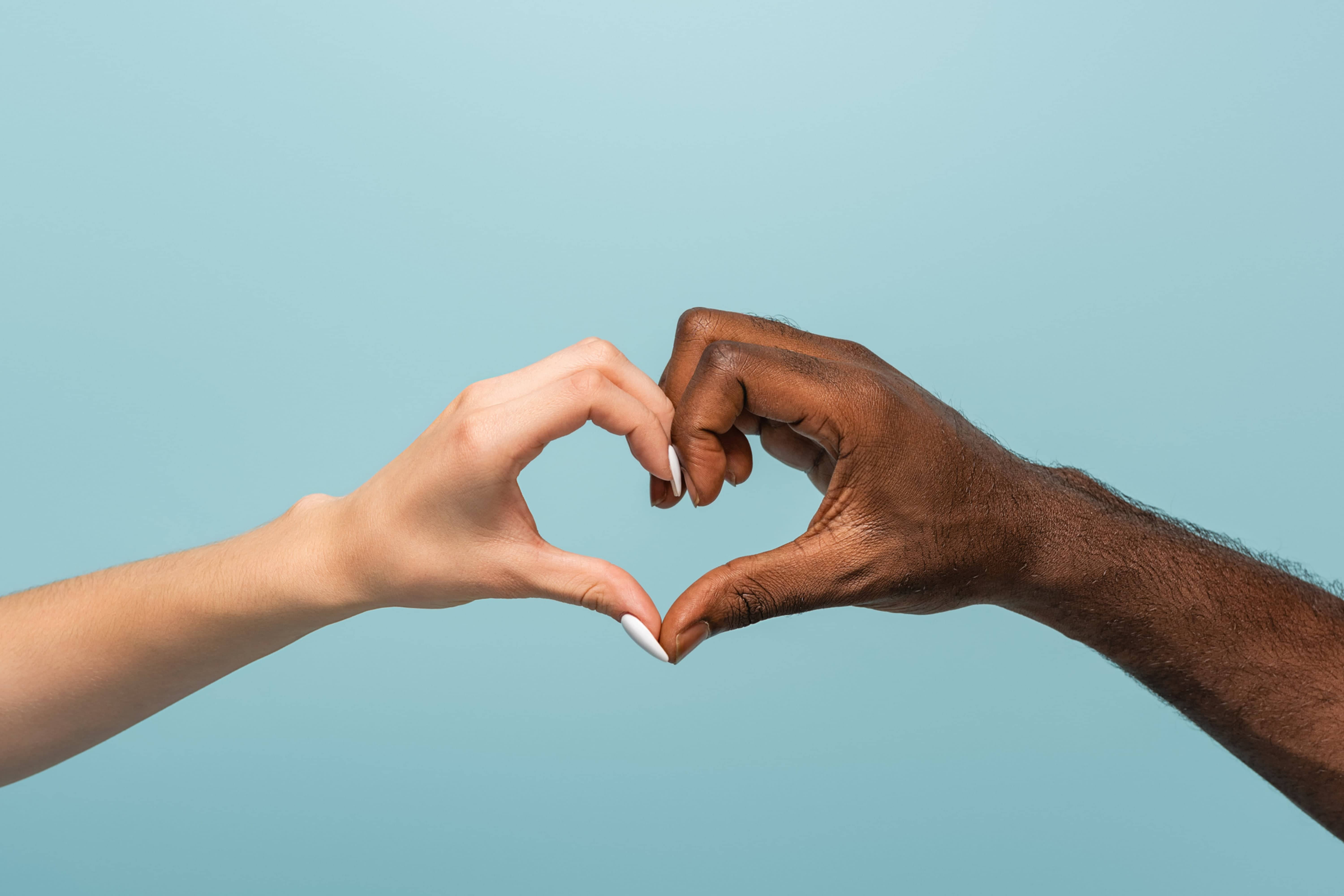Love, an emotion so profound and universal, has been the muse for countless tales, songs, and philosophies. While some believe that love is bound to a single lifetime, others entertain the idea that it can transcend lifetimes.
They argue that the deep connection one feels could be the result of a past life bond being rekindled. Intriguing, isn’t it?
Dive into this captivating journey where we explore the signs that hint you might’ve met your love from a previous existence. Let’s explore these indicators, blending science with age-old beliefs but always with a grain of skepticism and wonder.
While many of these signs are based on anecdotal accounts and certain cultural beliefs, research in areas like reincarnation and past life regression provides us with tantalizing evidence. The University of Virginia’s Division of Perceptual Studies, for instance, has documented numerous cases of children recalling past life experiences with astonishing accuracy.
Could our love stories, too, echo from the past? Here are 12 signs to consider:
1. Instant Connection
When you met, it felt like the stars aligned. There was an immediate and profound bond that neither of you could deny.
- You feel like you’ve known each other forever, even if you’ve only just met.
- Conversations flow easily, with little to no awkwardness.
- There’s a mutual understanding, almost like you’re reading each other’s minds.

2. Intense Familiarity
Ever had that déjà vu feeling when you’re with them? As if you’ve lived moments with them before.
- Certain places or activities might feel like a shared memory.
- You’ve had dreams about them before even meeting them.
- Mutual stories or experiences that eerily mirror each other’s lives.
3. A Pull That’s Hard to Explain
It’s like gravity. No matter the circumstances, you feel an inexplicable pull towards each other.
- Even after fights, there’s an undeniable urge to reconcile.
- When separated, there’s an inherent sense of longing.
- Your relationship feels bigger than just the present moment.

Comparison Table: Past Life Love vs. New Love
[table id=406 /]
4. Shared Dreams or Visions
It’s not just about dreaming of each other but also of shared past events or lifetimes.
- Dreams that narrate similar historical events or places.
- Vision-like moments when both of you recall the same past life memories.
- An affinity for a particular era in history, which you both share.
5. Synchronicities Abound
The universe seems to drop hints, reinforcing your bond.
- Running into each other in unlikely places.
- Significant dates or numbers that reappear in both of your lives.
- Mutual friends or acquaintances from different phases of life.

6. An Ageless Depth
The relationship feels ageless and mature even in its infancy.
- A sense of wisdom and maturity when dealing with relationship issues.
- Both feel like old souls, even if you’re chronologically young.
- The relationship has a timeless quality like it’s been through centuries.
Unnumbered Points to Ponder:
Are past life connections real, or are they just comforting notions?
- Science has shown the power of suggestion can be strong. Past life regression, for example, might be influenced by a therapist’s beliefs.
- Always be open to interpretations. After all, love is multifaceted and mysterious.
7. Karmic Patterns
Similar challenges emerge in your relationship, reminiscent of unfinished business.
- Repeating scenarios or issues that don’t pertain to your current life context.
- An urge to resolve these patterns gives a sense of closure.
- Feeling destined to be together, despite challenges.

8. Mutual Growth
Together, you both feel like you’re evolving into better versions of yourselves.
- Inspiring each other to face fears and grow.
- A shared journey of self-discovery.
- Pushing boundaries and embracing change together.
9. Spiritual Connection
Your bond goes beyond the physical and emotional; it’s spiritual.
- Mutual respect for each other’s spiritual beliefs.
- Shared spiritual practices or rituals.
- A deep-rooted sense of purpose in the relationship.
10. Unspoken Understanding
Words often become redundant. You understand each other without them.
- Communicating through gestures or mere looks.
- Predicting each other’s needs or feelings.
- Comfortable silences that speak volumes.

11. Repeated Draw to Each Other
No matter the breaks or separations, you find your way back to each other.
- Multiple encounters or relationships over time.
- A feeling of incompletion when apart.
- Circumstances repeatedly bring you together.
12. Resonance With Past Life Concepts
Both of you have a shared belief or curiosity about reincarnation or past lives.
- Similar views or experiences related to past lives.
- Resonance with cultural or philosophical beliefs about reincarnation.
- An inclination to explore past life regression together.

The Psychology Behind Belief in Past Life Love
Love is a complex and multifaceted emotion. It’s been the muse for countless sonnets, songs, novels, and movies. One captivating aspect of love that’s intrigued many is the idea that it might not be confined to a single lifetime but could stretch across several lives. The belief in love from past lives is not only romantically appealing but also deeply entrenched in various cultures and spiritual traditions.
But from a psychological perspective, why do some people believe so fervently in a love that has supposedly been carried over from a previous existence?
Can such eternal love truly exist? Let’s dive in.
Seeking Meaning and Depth
One of the reasons people may believe in past life love is the human tendency to seek deeper meaning and purpose in life. From an evolutionary standpoint, making connections and finding patterns are essential survival tools. Love, being one of the most potent emotions, is often where we seek the deepest meanings. When two people feel an uncanny connection or familiarity, it’s tempting to attribute it to a shared history that transcends their current life.
Narrative Identity and Self-Continuity
From a psychological standpoint, our identities are formed as narratives. We create stories about ourselves based on our experiences, culture, values, and beliefs. This concept, known as narrative identity, suggests that we craft our self-identity from the ongoing life story we tell ourselves.
The belief in past lives can be woven into this narrative, providing continuity to our sense of self. If two people believe they’ve been together in a past life, it solidifies their shared narrative identity, making their bond feel even more special and predestined.
Dealing with Loss and Trauma
Sometimes, the idea of past life connections can be a coping mechanism. For those who have experienced profound loss, the notion that they might be reunited with their loved one in another life can provide comfort. It’s a way of understanding and coping with grief and trauma. By believing that love can survive even death, the pain of loss becomes slightly more bearable.
Cultural and Spiritual Influences
Many cultures and religions around the world believe in reincarnation or some form of life after death. In these contexts, it’s not far-fetched to consider the possibility of relationships, especially profound ones like romantic love, continuing from one life to the next. For individuals raised within these beliefs, the idea of past life love aligns with their cultural and spiritual framework, making it a more accepted and internalized concept.
Can Such Eternal Love Truly Exist?
The existence of past life love, like many matters of the heart and soul, eludes empirical validation. While certain fields, like parapsychology, have ventured into researching reincarnation and past life memories, definitive scientific evidence remains elusive.
However, from a psychological perspective, the “reality” of past life love might be less important than its perceived reality. If two individuals genuinely believe they share a bond from a past life, this belief can shape their relationship dynamics, their commitment levels, and the depth of their connection.
In essence, the belief in itself can mold the reality of their love. This is backed by the psychological principle known as the “self-fulfilling prophecy,” where firmly held beliefs can influence behavior and outcomes.
Moreover, the idea of eternal love doesn’t necessarily need to hinge on past lives. Psychologically, “eternal” love can be seen as a bond that leaves an everlasting impact on an individual’s life. Such love, even if it doesn’t last in a tangible sense, continues to influence a person’s decisions, behaviors, values, and emotions.
The Double-Edged Sword of Belief in Past Life Love
The captivating allure of love that transcends lifetimes is deeply woven into many cultural narratives.
Movies, books, and even songs romanticize this idea of two souls finding each other repeatedly across the epochs of time.
However, as heartwarming as these tales might be, in the real world, this belief can lead to both elevated experiences and potential pitfalls in relationships.
Let’s delve into how the belief in past life love can color our perception of romance, sometimes veering into the realm of the unreal and distorted.
1. The Pressure of Perfection
If you’re convinced that you and your partner have been in love over multiple lifetimes, the expectation for your relationship to be perfect can be immense. After all, if a bond has persisted through various lives, shouldn’t it be beyond ordinary flaws and conflicts? Such a belief can create unrealistic standards, where ordinary disagreements or issues become magnified as betrayals of this eternal bond.
Instead of addressing issues, couples might sweep them under the rug, thinking that their eternal love should easily overcome any challenge.
2. Ignoring Red Flags
If someone is perceived as a “soulmate” from a past life, there’s a danger of romanticizing or excusing their behavior, even when there are clear signs of toxicity or incompatibility. The desire to fit the present relationship into the narrative of a timeless romance can make individuals overlook genuine problems, sometimes leading to prolonged emotional distress or staying in unhealthy relationships.
3. Stagnation and Lack of Growth
Every relationship requires effort, growth, and adaptability. But if a couple believes their love is destined and eternal from past lifetimes, there might be a subconscious reluctance to work on improving their bond in the present. The mindset of “our love has always been and will always be” can lead to complacency, ignoring the reality that relationships need nurture, effort, and evolution to thrive.
4. Over-Reliance on Fate
With the belief in past life love, there’s a temptation to rely too heavily on fate or destiny. Challenges, instead of being addressed and resolved, might be chalked up to karmic debt or past life residue. This can inhibit proactive problem-solving in the relationship, leading to passive acceptance of issues that could otherwise be addressed.
5. Reduced Individual Identity
Believing too strongly in a past life connection might overshadow individual identities. Both partners might become so engrossed in their shared narrative that they neglect their personal growth, dreams, and aspirations. Their lives become a quest to live out this predestined romance, sometimes at the cost of individual fulfillment.
6. Reinforcing Escapism
For some, the idea of a past life romance becomes an escape from the mundanities or challenges of present-day life. Instead of addressing present realities, they may dwell in the imagined beauty of their past love stories, sometimes leading to feelings of disappointment or disillusionment when the present doesn’t match up to the imagined past.
Conclusion
The belief in love from past lives is a complex interplay of psychological processes, cultural influences, personal narratives, and innate human tendencies. While empirical evidence for such eternal love remains a subject of debate, the psychological impacts of such beliefs are undeniable.
Whether or not love can truly span multiple lifetimes, the idea serves as a testament to humanity’s desire for profound, lasting connections and the lengths we’ll go to contextualize and understand the deep bonds we form. After all, as the saying goes, “Love is not an emotion; it’s a promise.”
Whether that promise spans a single lifetime or several is a romantic question that each heart must answer for itself.
[wp-faq-schema title=”Frequently Asked Questions”]
